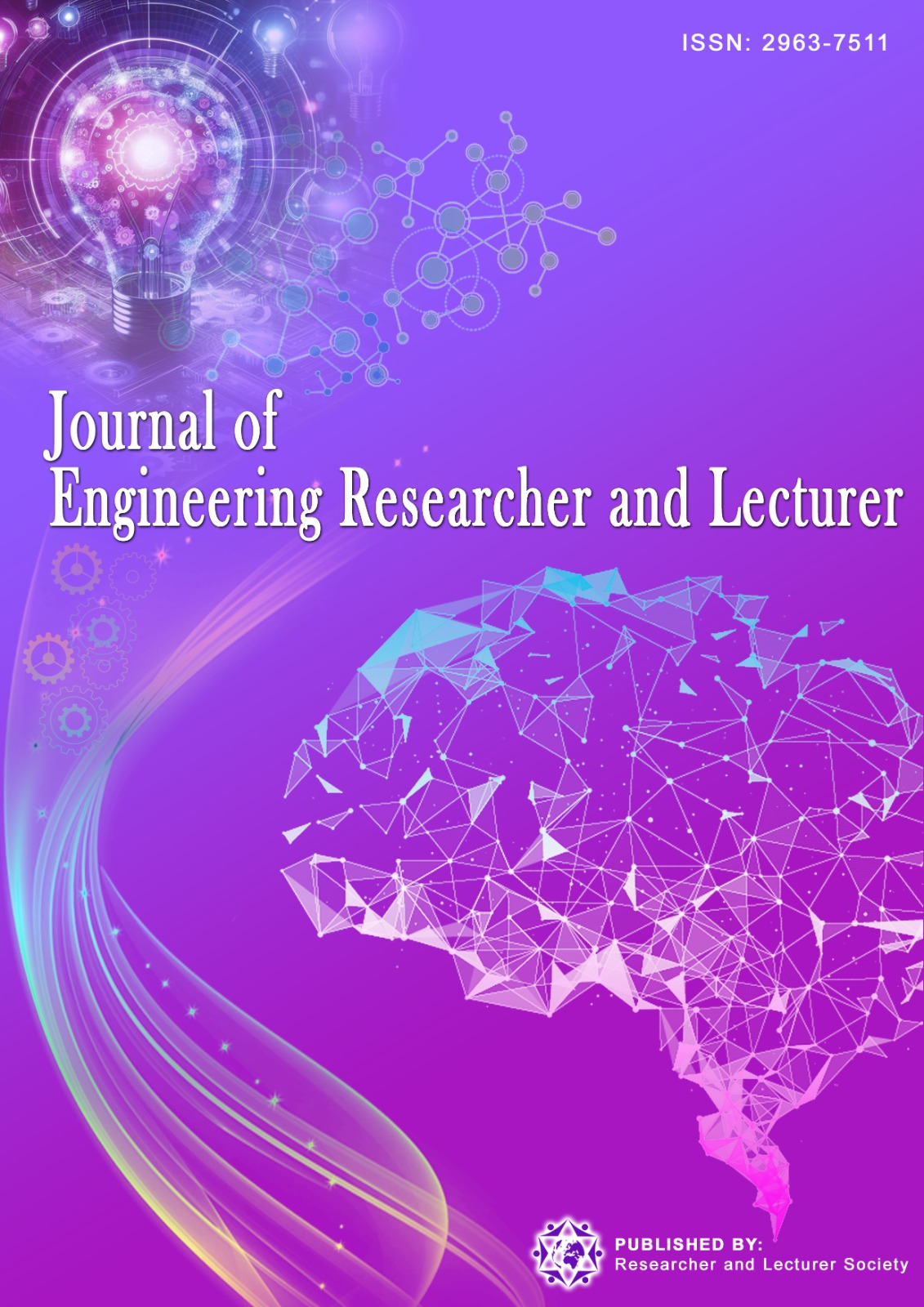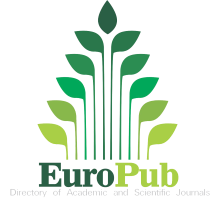Development of learning media based on Macromedia Flash 8 to see learning outcomes and achievements in vocational high school students
DOI:
https://doi.org/10.58712/jcim.v1i1.16Keywords:
Macromedia Flash 8, Learning Media, Learning Outcomes, ICTAbstract
This research aims to produce ICT learning media based on Macromedia Flash 8 to see the learning outcomes of students of SMK achievement class X multimedia and determine the quality of ICT learning media products based on Macromedia Flash 8 to see the learning outcomes of students of SMK achievement with the development method of R&D (Research and Development). This ICT media was assessed by 30 students of class X multimedia to find out student responses. The instrument used is a checklist (?) questionnaire. The type of data obtained is qualitative data which is analyzed using and will then be converted into quantitative data and then tabulated to determine the quality of the product developed. The results of this study indicate that the value of ICT learning media based on Macromedia Flash 8 has been produced, namely the results of user testing by students with a score of 4.78 in the very feasible category, thus it can be concluded that ICT learning media based on Macromedia Flash 8 to see the learning outcomes of X multimedia class achievement vocational students are declared feasible to be used as learning media on the material of basic concepts of computer operations.
Downloads
References
Abdulrahaman, M. D., Faruk, N., Oloyede, A. A., Surajudeen-Bakinde, N. T., Olawoyin, L. A., Mejabi, O. V., Imam-Fulani, Y. O., Fahm, A. O., & Azeez, A. L. (2020). Multimedia tools in the teaching and learning processes: A systematic review. Heliyon, 6(11), e05312. https://doi.org/10.1016/j.heliyon.2020.e05312
Audia, C., Yatri, I., Aslam, Mawani, S., & Zulherman. (2021). Development of Smart Card Media for Elementary Students. Journal of Physics: Conference Series, 1783, 1–10. https://doi.org/10.1088/1742-6596/1783/1/012114
Bahdin Nur Tanjung. (2020). Education Supervision in Increasing Competence Teachers in Curriculum 2013 (Study of Education Management Analysis). Britain International of Linguistics Arts and Education (BIoLAE) Journal, 2(2), 560–566. https://doi.org/10.33258/biolae.v2i2.267
Bhatt, D., Patel, C., Talsania, H., Patel, J., Vaghela, R., Pandya, S., Modi, K., & Ghayvat, H. (2021). Cnn variants for computer vision: History, architecture, application, challenges and future scope. Electronics (Switzerland), 10(20), 1–28. https://doi.org/10.3390/electronics10202470
Cervi, L., Tornero, J. M. P., & Tejedor, S. (2020). The challenge of teaching mobile journalism through MOOCs: A case study. Sustainability (Switzerland), 12(13), 1–15. https://doi.org/10.3390/su12135307
Dewi, S. M., Sofyan, D., & Priyono, A. (2021). Pop-Up Book Learning Media for Nationalism Character Building. International Journal of Elementary Education, 6(1), 10–17. https://dx.doi.org/10.23887/ijee.v6i1
Fernando, F., Patrizia, G., & Tiziana, G. (2020). Online Learning and Emergency Remote Teaching?: Opportunities and Challenges in Emergency Situations. Societies, 10(4), 1–18. https://doi.org/10.3390/soc10040086
Fortuna, A., Kurniawan, A., Andriani, W., & Alimin, M. (2023). Designing Learning Media Using Augmented Reality for Engineering Mechanics Course. Journal of Engineering Researcher and Lecturer, 2(1), 18–27. https://doi.org/10.58712/jerel.v2i1.20
Jalinus, N., Haq, S., & Kassymova, G. K. (2023). Work-based learning for the engineering field in vocational education?: Understanding concepts , principles and best practices. Journal of Engineering Researcher and Lecturer, 2(1), 9–17. https://doi.org/10.58712/jerel.v2i1.22
Marfuah, L., Franita, Y., & Hendrastuti, Z. R. (2023). Development of flash-based learning media to improve critical thinking ability of grade VII middle school students. Union: Jurnal Ilmiah Pendidikan Matematika, 11(2), 191–199. https://doi.org/10.30738/union.v11i2.13290
Murillo-Zamorano, L. R., López Sánchez, J. Á., Godoy-Caballero, A. L., & Bueno Muñoz, C. (2021). Gamification and active learning in higher education: is it possible to match digital society, academia and students’ interests? International Journal of Educational Technology in Higher Education, 18(1), 1–27. https://doi.org/10.1186/s41239-021-00249-y
Pan, D., Su, F., Liu, C., & Guo, Z. (2020). Research progress for plastic waste management and manufacture of value-added products. Advanced Composites and Hybrid Materials, 3(4), 443–461. https://doi.org/10.1007/s42114-020-00190-0
Prasetya, F., Fajri, B. R., Wulansari, R. E., Primawati, & Fortuna, A. (2023). Virtual Reality Adventures as an Effort to Improve the Quality of Welding Technology Learning During a Pandemic. International Journal of Online and Biomedical Engineering, 19(2), 4–22. https://doi.org/10.3991/ijoe.v19i02.35447
Prasetya, F., Syahri, B., Fajri, B. R., Wulansari, R. E., & Fortuna, A. (2023). Utilizing Virtual Laboratory to Improve CNC Distance Learning of Vocational Students at Higher Education. TEM Journal, 12(3), 1506–1518. https://doi.org/10.18421/TEM123-31
Sari, S. Y., Rahim, F. R., Sundari, P. D., & Aulia, F. (2022). The importance of e-books in improving students’ skills in physics learning in the 21st century: A literature review. Journal of Physics: Conference Series, 2309(1), 1–8. https://doi.org/10.1088/1742-6596/2309/1/012061
Sha, L., & Xiong, Y. L. (2020). Plant protein-based alternatives of reconstructed meat: Science, technology, and challenges. Trends in Food Science and Technology, 102, 51–61. https://doi.org/10.1016/j.tifs.2020.05.022
Shatri, Z. G. (2020). Advantages and disadvantages of using information technology in learning process of students. Journal of Turkish Science Education, 17(3), 420–428. https://doi.org/10.36681/tused.2020.36
Szymkowiak, A., Melovi?, B., Dabi?, M., Jeganathan, K., & Kundi, G. S. (2021). Information technology and Gen Z: The role of teachers, the internet, and technology in the education of young people. Technology in Society, 65(1), 101565. https://doi.org/10.1016/j.techsoc.2021.101565
Taques, F. H., López, M. G., Basso, L. F., & Areal, N. (2021). Indicators used to measure service innovation and manufacturing innovation. Journal of Innovation and Knowledge, 6(1), 11–26. https://doi.org/10.1016/j.jik.2019.12.001
Wibawa, S. C., Cholifah, R., Utami, A. W., & Nurhidayat, A. I. (2018). Creative Digital Worksheet Base on Mobile Learning. IOP Conference Series: Materials Science and Engineering, 288(1), 1–10. https://doi.org/10.1088/1757-899X/288/1/012130
Yusup, L. L., Eraku, S. S., & Yusuf, D. (2023). Media Development Using Macromedia Flash 8 on the Material of the Dynamics of Planet Earth. International Journal of Innovation and Education Research, 2(2), 79–95. https://doi.org/10.33369/ijier.v2i2.28909
Downloads
Published
How to Cite
Issue
Section
License
Copyright (c) 2023 Jhonita Varadila, Ranny Meilisa, Imamudin, Adinda Annisa, Fan Folkourng

This work is licensed under a Creative Commons Attribution 4.0 International License.
Most read articles by the same author(s)
- Wahyuni Nita, Ranny Meilisa, Imamudin, Roza Pebrianti, Hlaing Su Nandar, The effect of articulate storyline-based interactive learning media to facilitate student learning independence , Journal of Computer-based Instructional Media: Vol. 1 No. 1 (2023): Regular Issue

























